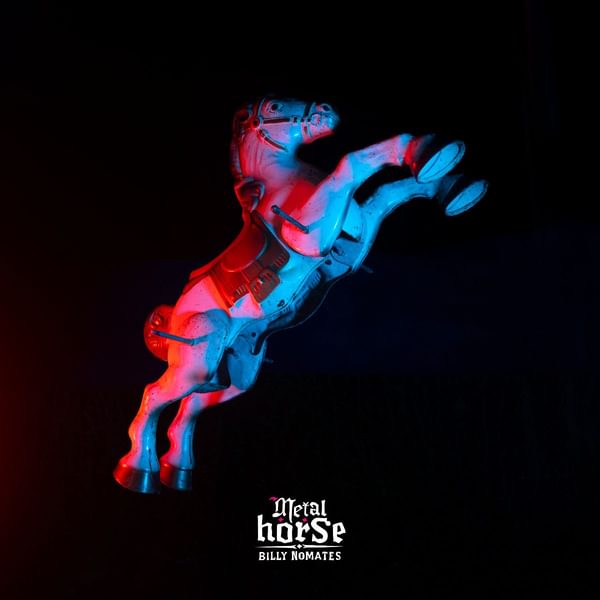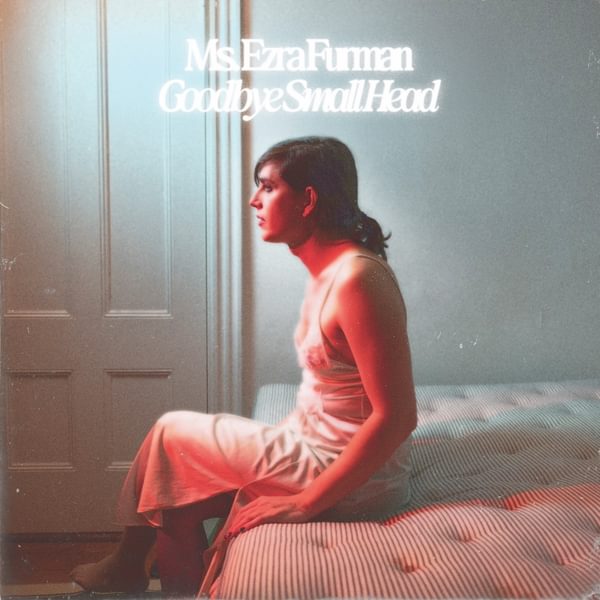
Clara Mann is in the driver’s seat
London-based singer/songwriter Clara Mann tells Alan Pedder why her debut album Rift is not a breakup record but a mending record, and about the bumpy road she travelled to get there.
If there’s one thing that Clara Mann loves almost as much as music, it’s her car Frankie.
Named after French feminist writer and activist Françoise Sagan, the dark grey Nissan Micra is her sanctuary on wheels, a home away from home. It’s also a recurring character on her debut album, Rift, a poetic meditation on forward motion, cast in twilight tones of saffron and scattered-light blues.
Having grown up in a small rural community in the south of France and a village in southwest England, nearby Cheddar Gorge, getting her first car at 17 (also a Nissan Micra, also named after a French feminist writer) was a watershed moment, pulling back the curtain on a world of open roads and tender adventure. As the daughter of two writers, Mann had travelled the world over through the books and stories she’d devoured as a kid, and having a car only fortified the independence she felt in her bones.
“I’ve always sought out freedom, sometimes to a fault,” she tells me over coffee, not far from the studio where she recorded the majority of Rift with 4AD Studio producer Fabian Prynn. “As I’ve grown up a bit, I’ve realised that freedom and independence doesn’t necessarily mean anything when you’re always on your own,” she says, explaining that she's still learning how to balance her self-direction with her desire for closeness. “I wanted to let go of the need to do everything alone all the time, but I’ve definitely struggled with that.”
Written over the course and end of a long-term relationship, there’s a lot of struggle in Rift, a lot of letting go. But don’t dare call it a breakup record. It’s a mending record, like songwriting kintsugi or an earthquake in reverse. “I think when you go through something really profound and something very fundamental in your life is changing, it does feel like being pulled apart, like something geological,” says Mann. “There’s this gap that you’re left with, and you have to figure out what to do with that emptiness. That’s why I think Rift is a hopeful record, because I imagine these songs almost like water flooding into the cracks of this dried up earth.”

What Rift also represents is Mann signing herself over fully to music and giving it the space to become the fabric of her life. Not a side quest or a scenic drive-by, but fundamental to the framework of her story. It wasn’t always a given. Though she was classically trained on piano as a child, when she pictured her future it looked a lot like the lives of her parents in academia. Then, just as she was preparing to move to London to start a degree in French and History of Art, she suddenly blanked. “I found myself asking why I was really taking that path,” she says. “Was it just because I’d grown up always thinking that’s what I wanted, because it felt set out for me, in a sense? What if I didn’t want to do that anymore?”
Part of that questioning arose from starting to immerse herself in Bristol’s DIY music scene, often bussing there from Cheddar with a friend to see whichever bands happened to be playing. Drawn to the guitar because she liked the way it hugs the body as you play, as opposed to the formal distance of a piano, she began to write her own songs and uploading simple home recordings to Bandcamp.
It was around that same time that the relationship chronicled on Rift began, with another musician whom she wound up recording her debut EP Consolations with, while isolating during Covid. A support tour with Grizzly Bear’s Daniel Rossen followed, and he later came on board to produce a track from her next EP, Stay Open, released in late 2022. “Committing to making an album felt like quite a big deal,” she says. “I had no idea how I was going to write ten songs, record them really nicely, and make them sound exactly how I want.”
As it turns out, once she had the right collaborators in place, getting the songs to sound exactly how she wanted was surprisingly easy. “All I knew was that I wanted there to be a strangeness to them, because I feel quite alienated a lot of the time,” she says. “Actually, I think that being a maker requires some degree of alienation from your surroundings otherwise how do you observe, if not from slightly on the outside of things? I wanted to get that in the recordings so I told Fab, and Tom Kellett [who recorded “Rift” and “It Only Hurts” in his living room], that I wanted the songs to feel like tiny ghosts whispering in your ear. But they’re also shouting and it’s really intense. Like you’re scared, but also you’re happy that I’m there.”
To be clear, there is no actual yelling on Rift, but listen closely and you’ll surely find that there’s a grittiness to it. Whereas other producers have tried to cast Mann in the role of fading faerie girl, brittle and pale, Prynn and Kellett understood the assignment, allowing the otherness of her soft-hard songs to naturally creep in. “The story of the record is a journey through a dark place towards something lighter,” she says, with careful emphasis on towards. “I think to is too strong a word because there’s no arrival point – but then there never is.”
The journey Mann describes is as much about coming through early adulthood and its mire of confusion as it is about the man she bade farewell. The stirring title track is a fine example, exploring the shift in dynamics with our parents that happens when we leave home. Coming back, the scene can sometimes feel altered, the familiar space somehow out of alignment. Mann says it’s partly about her mother, but mostly it’s about holding the line. “I think I have a lot of faith in my life,” she says. “It’s like I can see a star and I’m following it, and whatever happens it’s just me, it’s the keys in my car, heading in the direction of that sun. Everything else can fracture and change around me – even certain things like home – but that light is the constant.”
"Since a young age, I’ve tried to reason things away and to find too many words for my feelings."
“Reasons” is another teachable moment song, stemming from a realisation Mann had while in therapy that she wasn’t really sitting with her feelings. She had a tendency instead to “explain them to death,” boxing them up and filing them under ‘IRRATIONAL’. “I guess the only downside of growing up with two academic parents is that you have too many words,” she says, laughing. “Since a young age, I’ve tried to reason things away and to find too many words for my feelings. It’s actually very easy to stop feeling things if you can just dismiss them. But it still has to hurt, you know? You still have to go through things.”
It may be one of Rift’s lighter-sounding tracks, thanks to Prynn’s lilting production, but “Reasons” comes from one of Mann’s worst summers, spent living in an airless box room and feeling like her life was closing in on her. “A terrible experience,” she says flatly. “I felt like I was heading to a point of tension in my life, like the closeness of a city summer building to a breaking storm. I think it was a coming-of-age thing too, and thinking, ‘Well, I have to commit to something. This period of innocence is not sustainable. Something’s got to give.’”

Mann isn’t typically one who writes in the moment, preferring to let her emotions percolate through months or years of earned objectivity, but Rift contains a couple of notable exceptions. There’s “Oranges”, written three weeks before her breakup and oddly prescient of it – “almost word for word, which is crazy” – and the quavering first track “It Only Hurts”, which poured out of her just two days after the split.
“I’m not someone who writes for catharsis, but that’s what this song was for me,” she says. “I couldn’t think about anything else in my life other than that the future we’d imagined together was gone and I was left with all these broken pieces. I still had this blind faith and trust that things were going to be okay, but I couldn’t feel that in the moment. All I could feel was this fracturing.”
“I like that the album starts with this song, and it feels like everything is at rock bottom,” she adds. “But it’s not rock bottom, because I hadn’t even really processed it then. Rock bottom came maybe two weeks later, when everything had just fully exploded.”
For Mann, writing songs is a lot like driving, in the sense that both are always there to turn to as a thing that she can do for herself, by herself, even at her most crushed and beaten. But sometimes it’s the other party driving away, leaving their attachment crumbled in the dirt. “So it falls apart, scattered in the grit under your car,” she sings on the gut-punching “Doubled Over” – a song she says reminds her of the artwork for the Lucinda Williams masterpiece Car Wheels on a Gravel Road, “bleak but so beautiful, and completely quiet.”
There’s a branch of natural theology, similar to place memory, that argues that stone can ‘record’ traces of human thoughts and emotions, like a tape with no means of playback. It might be a stretch to imagine that a driveway can act as some sort of involuntary diary, but, as someone who grew up in old houses and experienced phenomena that couldn’t be explained, Mann is willing to give the idea some latitude.

“I don’t know the intricacies of the theory but I love the idea of a stone tape that holds the memories of things that have happened,” she says. “I’m not actually that superstitious,” she hastens to add. “It comes back to that faith I have in things that we can’t see. I believe in those things in a very literal sense, in that I just know that they are there and I trust them.” Unusually for Mann, she’s almost lost for words to describe what she perceives. “There’s no vocabulary around it,” she says. “You just know in your body, if that makes any sense.”
Rift’s imagistic closing track “The Dream” echoes that embrace of the unknown, pulling together scenes and impressions that Mann says had marked her in the months leading up to the album’s completion. “It’s like an everything song,” she says. “It’s about how you don’t know what things are going to mean to you until they settle in. Like ‘Rift’, it’s a song that feels like it happened to me rather than being something I sat down to write, and it’s very special to me.”
Rounding out Rift’s tight half-hour runtime, “The Dream” does that perfect last song thing of subtly shifting perspective, lending the past a compassionate finality. Here, lovers become embers become birds: swallows circling through the air, symbolic of a life’s conspicuous new season. As on “Oranges” and “Rift”, there’s a sense about “The Dream” of reconstitution and finding new meaning in connections’ changing shapes. “I’ve learned to love my life, and myself, in a very different way,” says Mann of the mending process. “Independent of a relationship, or any relationship. It comes from inside me.”
Get the Best Fit take on the week in music direct to your inbox every Friday
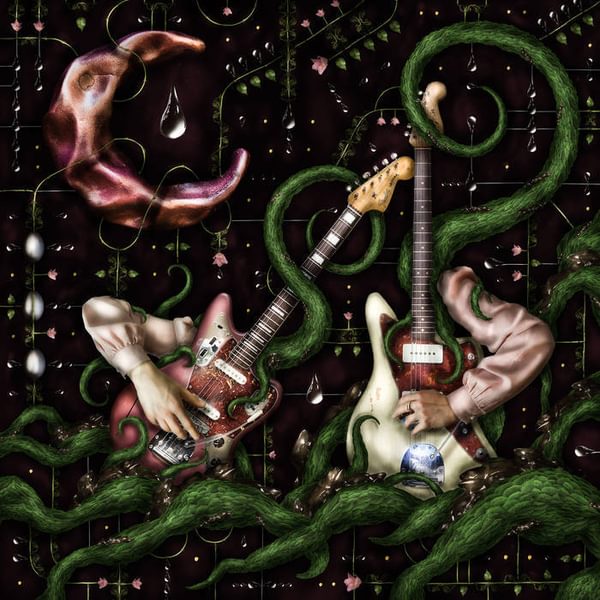
100%WET
100%WET
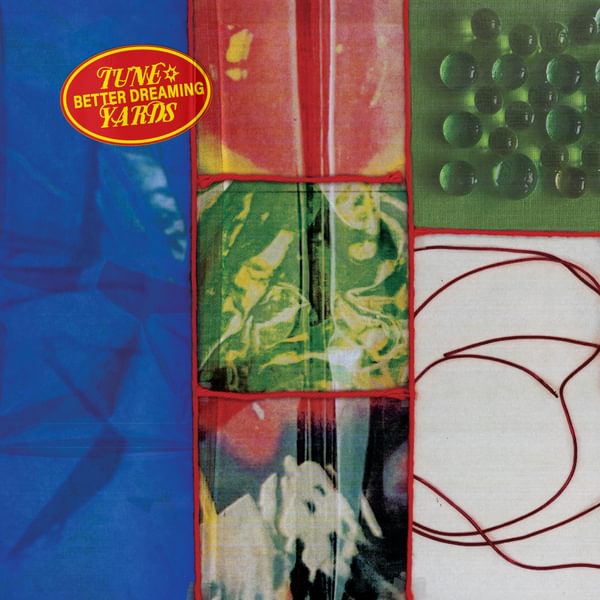
Tune-Yards
Better Dreaming
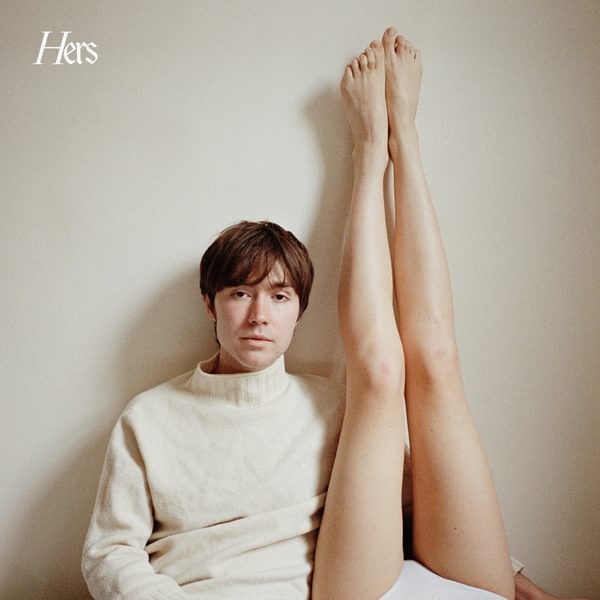
Matt Maltese
Hers
